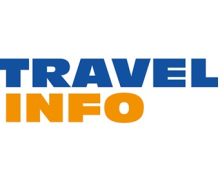Three-quarters (74%) of small business owners in the South African tourism sector are feeling optimistic as they head into the first restriction-free holiday season in two years, according to new research from small business technology platform Xero.
The research was conducted by Censuswide among 150 small business owners in the tourism sector across South Africa in October.
The research further highlighted that, despite the optimism, small businesses – who make up the majority (around 60%) of South Africa’s tourism industry – have a large gap, brought on by the negative impact of the COVID Pandemic, to close.
Over three quarters (77%) experienced at least a 21% drop in revenue over the last two years. On top of this, a third (34%) said a lack of financial skills was their number-one challenge, with 35% calling for more government investment to help them with digital skills and innovation.
Colin Timmis, South Africa Country Manager at Xero, said: “There is a lot riding on this tourism season. The sector is a big contributor to GDP and a third of those we surveyed are looking to hire in the next 12 months. But small businesses won’t be able to grow without more support in key areas like digitisation, financial management, loadshedding, and reducing late payments from big businesses.”
Over a quarter (27%) of small business owners wanted to see greater effort from the government to attract more tourists to South Africa this peak season. “So,” Timmis noted, “it’s positive to see flight and visitor numbers on the rise.”
Most small business owners (96%) said disruption from load shedding over the last few months had had a negative impact on their company. And corporates are continuing to flout agreed payment terms, with 35% of small tourism businesses experiencing late payments month-on-month.
Digital adoption is the key to driving growth
Just under half (44%) of businesses are planning to invest in digital skills and training within the next 12 months, but many are being left behind when it comes to adopting digital tools. More than a third (38%) of tourism businesses are still managing their finances on spreadsheets.
And with 32% citing poor tax compliance as one of their top financial challenges, Timmis said many could be improving their outlook by using digital tools that help to automate tax filing and give them greater control over their cash flow.
He continued: “It’s worrying to see so many businesses still using spreadsheets or even paper to manage their finances. These businesses risk being left behind and will struggle to do simple things like apply for funding in the future if they don’t adapt. Our country desperately needs to invest in and promote the benefits of technology.”














